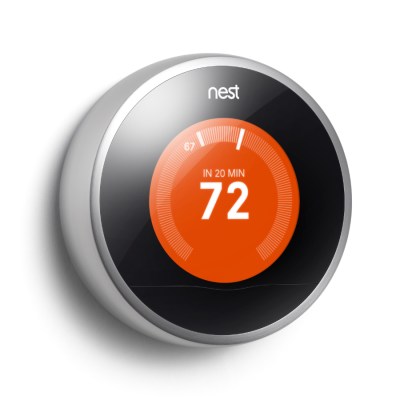Apple, Microsoft and Google may all be vying for the attention of a single startup, according to a new report yesterday from The Wall Street Journal. That startup is id8 Group R2 Studios Inc., a company with a rather obtuse name that flies primarily under the radar, tackling home automation software for mobile devices. So why are the biggest sharks in the tech industry circling R2 Studios right now? Because after building location, social and intelligent assistant features into gadgets powered by mobile operating systems like Android and iOS, home automation is the next big opportunity to add yet another layer of use value to portable devices.
R2’s first project is an Android app that allows users to control their heating and lighting systems via their smartphone devices. The company, founded by Blake Krikorian who previously founded the Slingbox, also holds some patents related to control of electronic devices and control interfaces. Apple, Google and Microsoft are all very much interested in making connections between mobile tech and the traditional household entertainment hub, the living room, and have all introduced technology to prove it. Apple’s AirPlay and Apple TV, for instance; Google’s TV efforts, Nexus Q (which, while shelved, showed its interest in this at least) and media streaming in Android 4.2; and Microsoft’s Xbox/Windows 8/Windows Phone 8 home media integration services all reflect this trend.
The talks between R2 and these coompanies are still in very early stages, WSJ reports, but all of the big three are already thinking about ways to tap into the living room, and the next logical step goes beyond just the confines of media and entertainment. Already, both Google and Apple at least are also taking steps to make their mobile devices more full-featured personal assistants: Apple with Siri and Google with Google Now. But why limit these to just finding good restaurants nearby or serving local movie show times or box scores from the baseball game? Why not have the phone use all of its contextual information to also help with home automation, but in a way that makes those features tied to the OS as a service layer, rather than something people need dedicated apps to handle?
The paradigm here is the same as it was for streaming media: it makes much more sense for Apple to build AirPlay and have it work across its lineup of devices, independent of individual media app settings, than to let each content source try to table their own solution. Likewise, a home automation control system that you can then make available to hardware makers (as Apple has done with AirPlay) to make sure they work with iOS (or Android, or whoever ends up going forward with this first) devices out of the box makes more sense, and will engender greater general adoption, than relying on manufacturer-specific solutions.
We’ve got Nest, Philips Hue and the new Lumawake as jus a few recent high-profile examples of how home automation is getting smarter and better than the basic, smartphone-connected remotes of the past. Devices like these would all benefit from having access to a user’s smartphone that goes beyond communicating with a specific app, and gets into mining contextual information about a user to truly inform their automation patterns. Google, Apple and Microsoft could just continue to let home automation remain the province of third parties, but they’d be leaving a lot on the table in terms of added value for their users, especially now that we seem to be approaching a turning point for broader mass adoption of this kind of tech.
